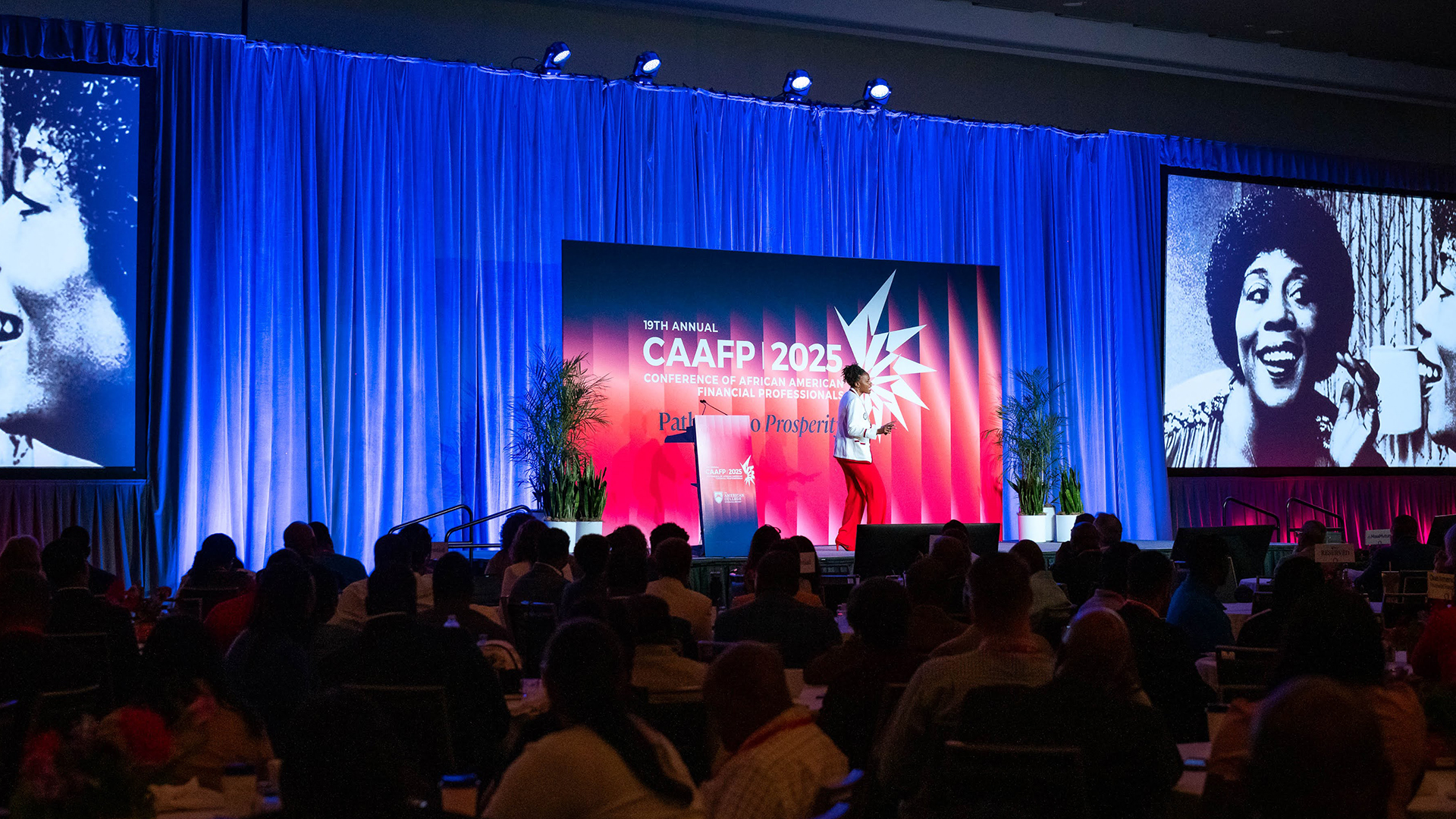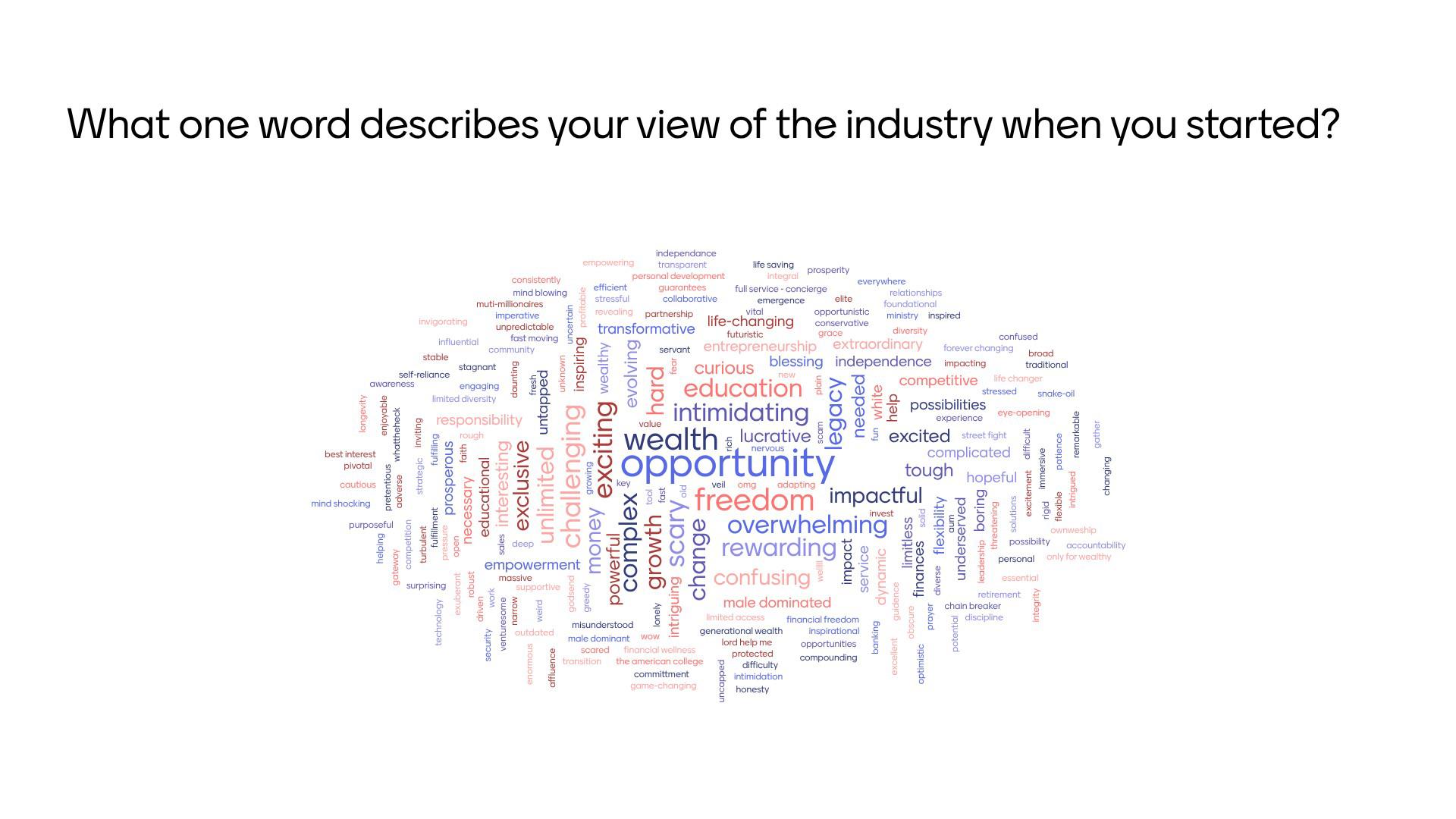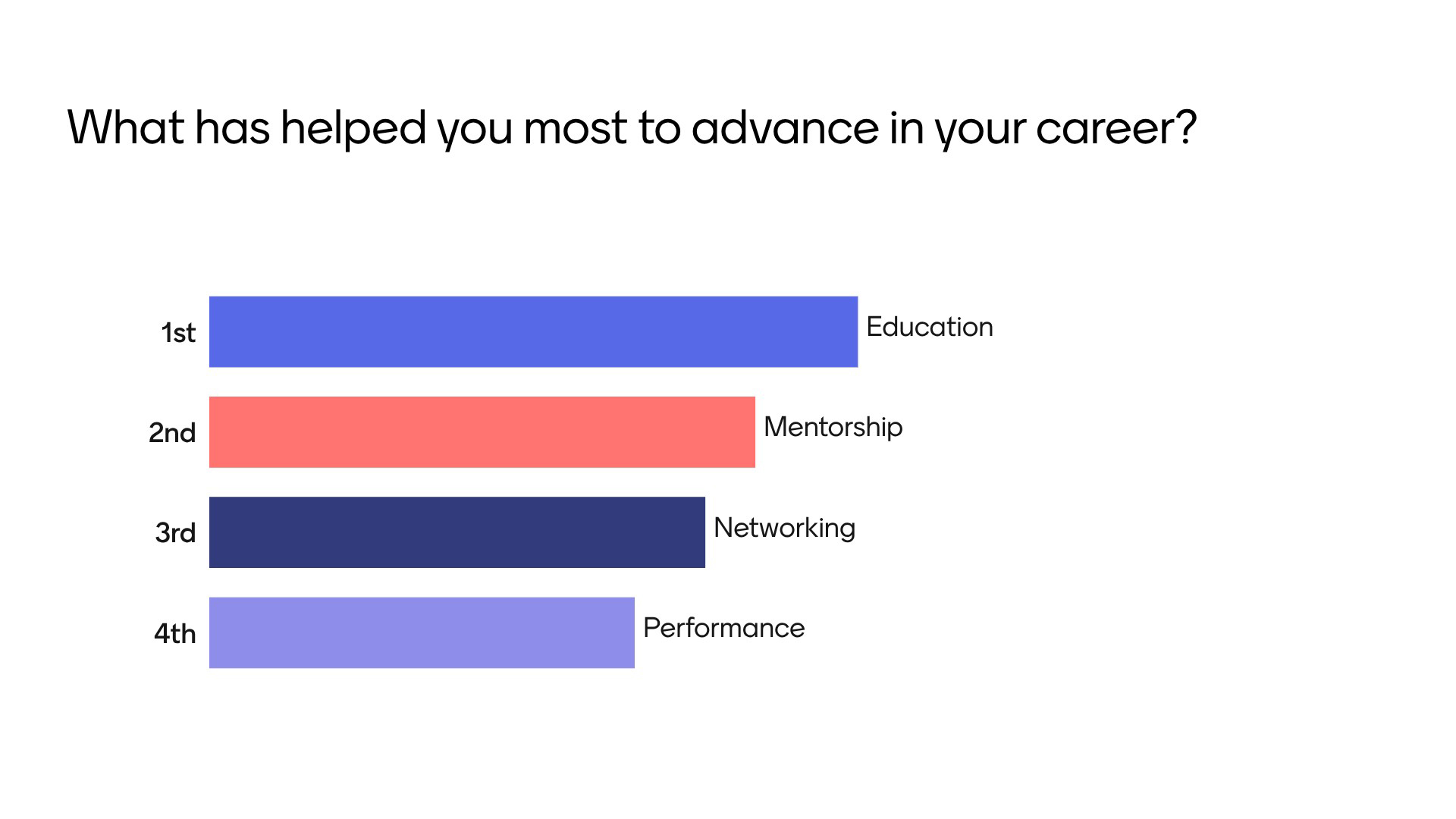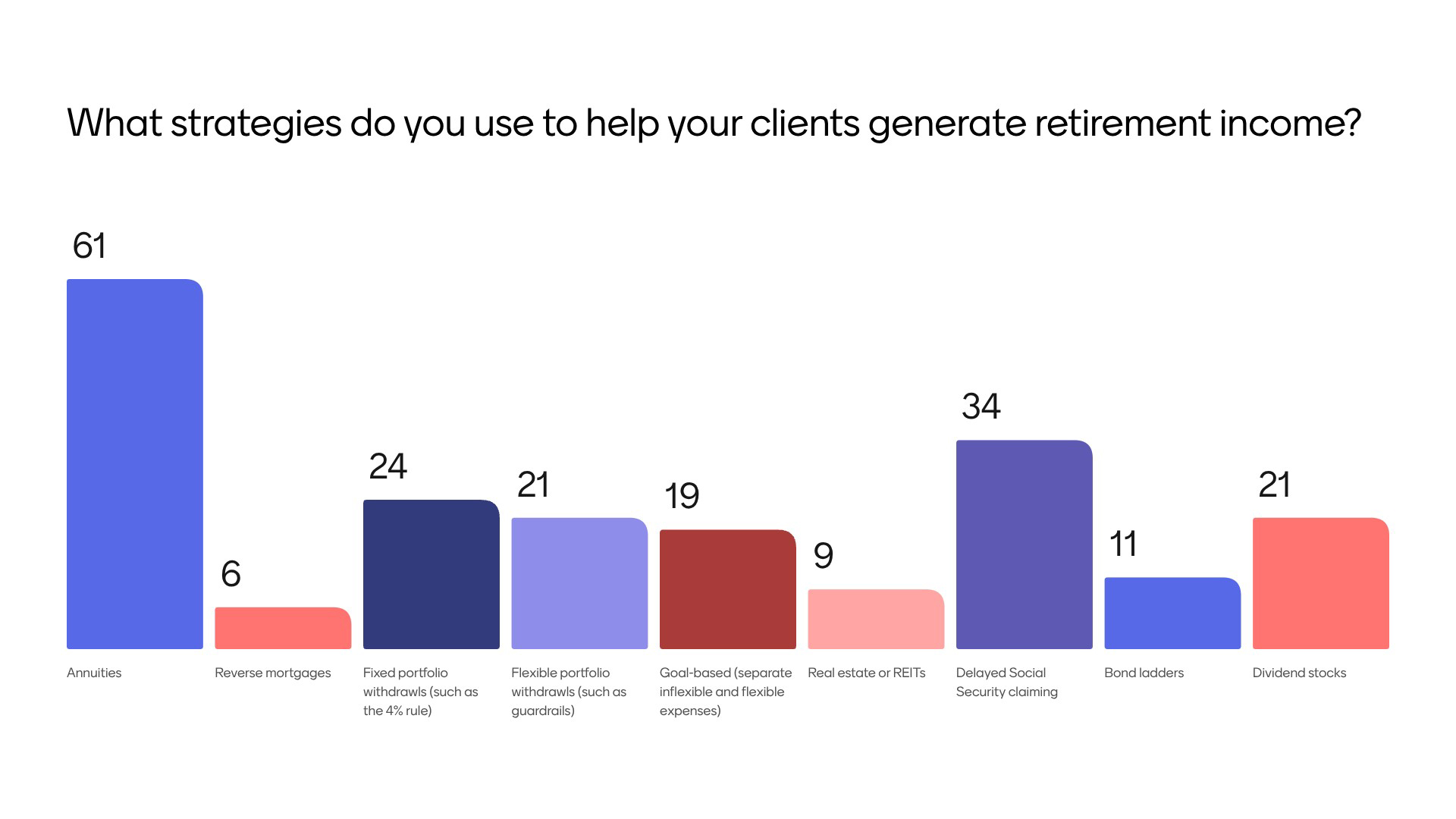On the Pulse of the Profession: Insights from CAAFP 2025
At CAAFP 2025, attendees explored how education, professional development, and financial literacy shape career success.
Subscribe to Newsletter
Related Posts
Reflecting on 25 Years of the Forum on Ethical Leadership
View DetailsSocial Security at Every Life Stage
View DetailsSeptember 09, 2025
At the 19th annual CAAFP, attendees reflected on their career journeys, shared their top retirement income strategies, and explored the role of financial literacy in driving success.

In Atlanta, GA on August 11-13, professionals from across the industry came together for the 19th annual Conference of African American Financial Professionals (CAAFP). The event’s theme, “Pathways to Prosperity,” encouraged attendees to consider their ability to make a difference not only in the lives of their clients and community, but also in the future of financial services.
Throughout the three-day event, attendees answered a variety of questions focused on the industry, their professional development, and financial literacy for both themselves and their clients. Their responses revealed valuable perspectives on the financial services industry, the knowledge that fuels professional development, and insights that empower advisors and clients alike.
Day One
What one word describes your view of the industry when you first started?
On the first day of CAAFP 2025, we asked attendees to reflect on their earliest perceptions of the financial services industry. This question wasn’t just about nostalgia — it was about understanding how financial professionals’ first impressions are shaped by broader industry trends, now and in the future.
The responses, captured in a word cloud, offered a nuanced illustration of the industry. On the positive side, words like “opportunity,” “education,” and” rewarding” point to the industry’s longstanding potential to create meaningful careers and lasting client impact. Simultaneously, descriptions such as “intimidating,” “challenging,” “overwhelming,” and “male-dominated” reflect the very real barriers professionals have faced — and continue to navigate — as the industry evolves.

Taken together, these insights suggest that while the financial services profession offers rich opportunities for success, it also demands resilience, continuous learning, and an intentional push towards an inclusive, forwarding thinking industry. They highlight how professional development and advanced education remain central to ensuring the industry continues to grow in ways that serve both financial professionals and their clients.
Day Two
What has helped you most to advance your career?
On the second day, we asked attendees to reflect on the resources that have most supported their professional development and career success: education, mentorship, networking, or performance. Among these, education emerged as the top resource, highlighting the critical role of continuous learning in helping financial professionals stay ahead in a constantly evolving industry.
Mentorship and networking also resonated strongly, with networking just slightly behind in first-place votes. These responses underscore the value of connecting with peers and experts to share insights and build community in the profession.

At The College, we aim to meet these needs by offering educational programs designed not just to impart knowledge, but to provide practical, real-world strategies that learners can apply immediately with their clients. Our enterprise events — like CAAFP or Horizons — create spaces for meaningful networking and peer-to-peer learning, helping professionals exchange ideas, gain diverse perspectives, and build professional relationships that last. Together, these efforts empower learners to advance their careers, strengthen their foundational and specialized knowledge, and contribute to bettering the broader financial services industry.
Day Three
What strategies do you use to help your clients generate retirement income?
On the third day, we asked attendees about the retirement planning strategies they most frequently use with clients. Annuities and delayed Social Security claiming emerged as the top two strategies, reflecting their continued relevance in helping clients secure predictable, reliable income streams and optimize their retirement timing.
These responses underscore the value of a comprehensive approach to retirement planning — a perspective reinforced in programs like the Retirement Income Certified Professional® (RICP®) Program, which covers these strategies in depth. By combining technical knowledge with practical, client-focused applications, programs like the RICP® help financial professionals confidently guide clients through complex retirement decisions.

In addition to the daily questions, attendees also reflected on financial wellness and literacy during a keynote session with President and CEO of The College George Nichols III, CAP® and First Independence Corp and First Independence Bank CEO Kenneth Kelly.
The questions focused on their own and their clients’ wills and credit scores. The responses revealed that many attendees — and their clients — either did not have a will or were unsure if one existed, while credit scores were more varied, with most attendees rating themselves from “fair” to “exceptional” but often uncertain about their clients’ scores.
"How can I leverage what I know in such a way that others in the community can also benefit from it?"
- Kenneth Kelly
“When you look at the numbers, it's very telling,” said Kelly of the survey results. “As we talk about financial wellness or literacy, the data reveals an opportunity to continue to grow and make some changes culturally, but also individually. As George said, we can't help others if we haven't helped ourselves.”
The findings underscore the importance of ongoing financial education, not just for professionals, but for the clients and communities they serve. By first growing and educating themselves, as Kelly suggests, financial professionals can pass on their knowledge and help create pathways to prosperity for their clients, ultimately strengthening their decision-making, planning, and overall financial wellness.
More From The College
- Learn more about the American College Center for Economic Empowerment and Equality
- Get key insights for uncertainty with our Advising Through Uncertainty Study
Related Posts
Reflecting on 25 Years of the Forum on Ethical Leadership
View DetailsSocial Security at Every Life Stage
View Details